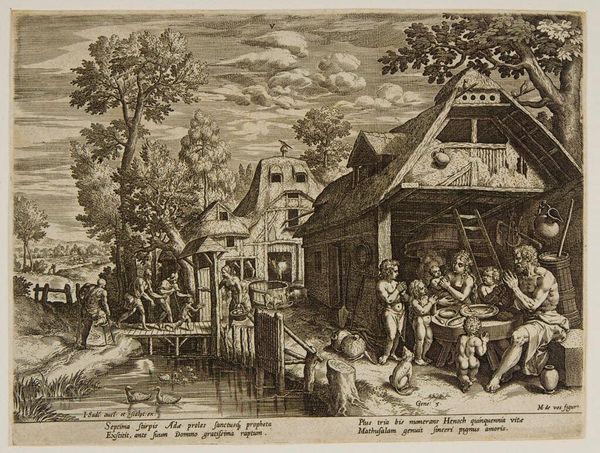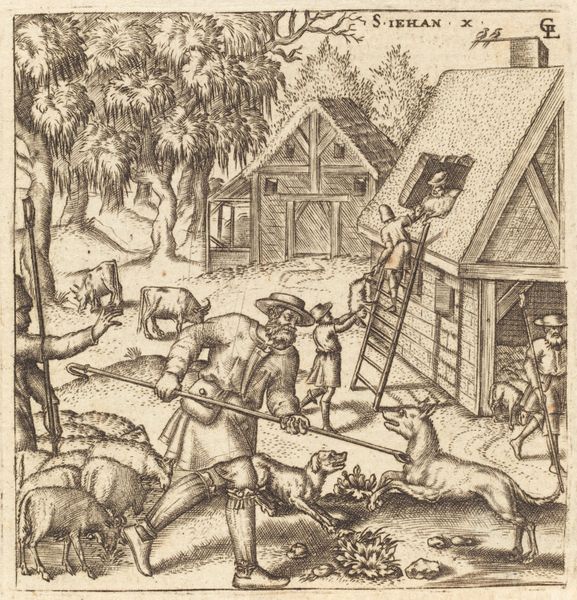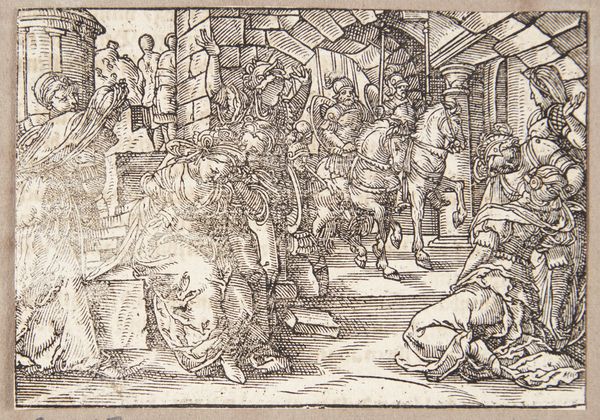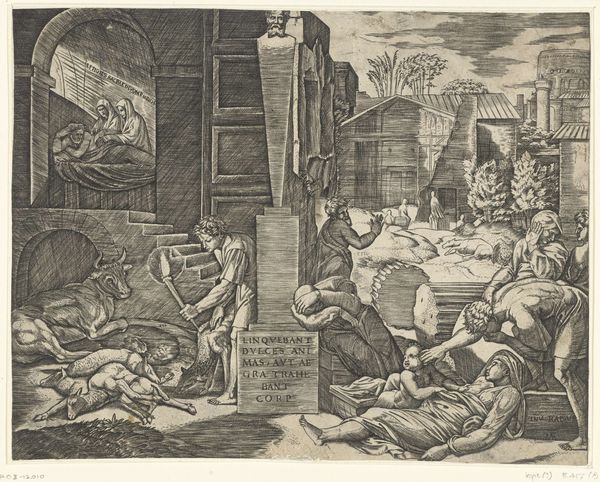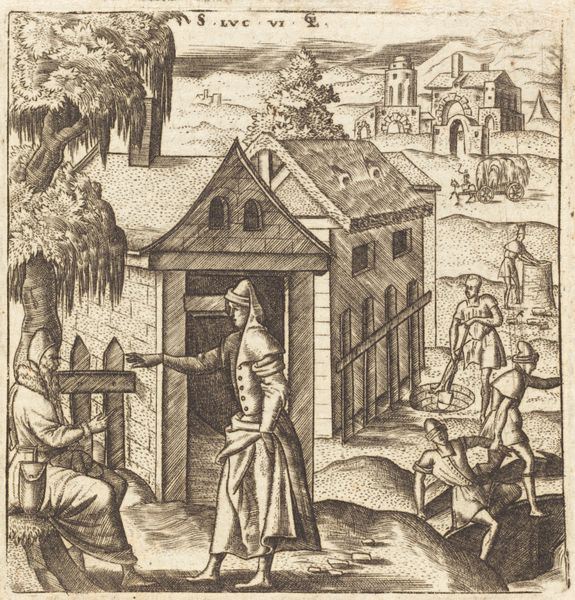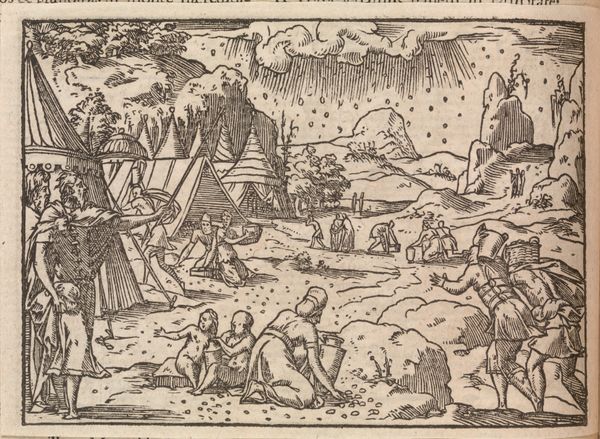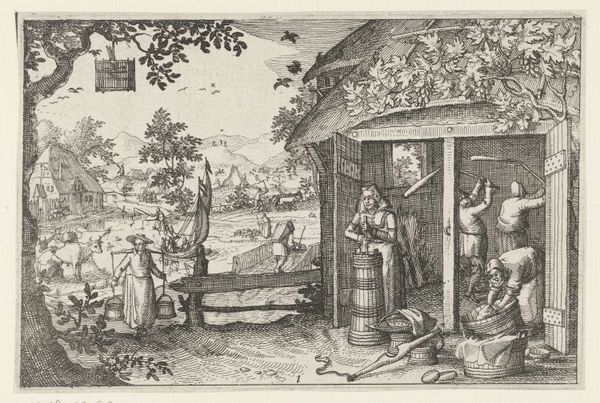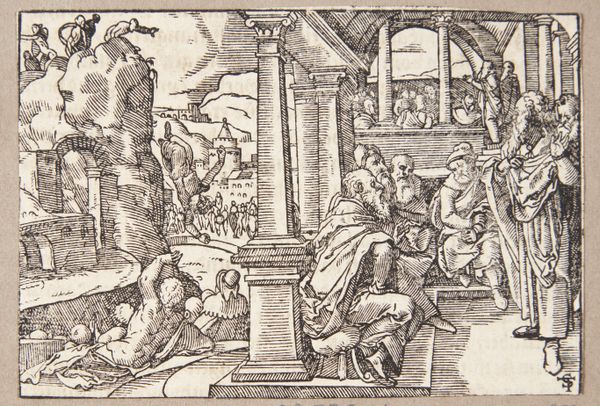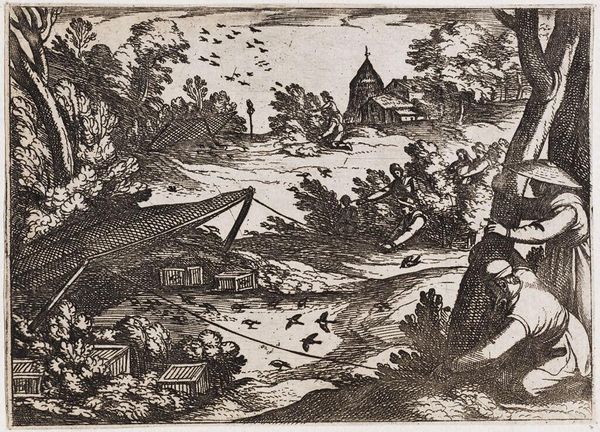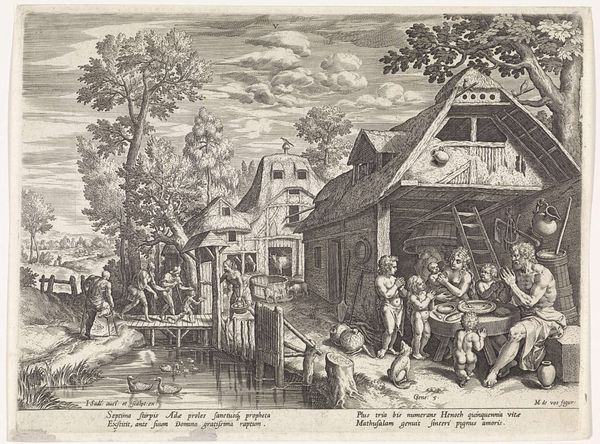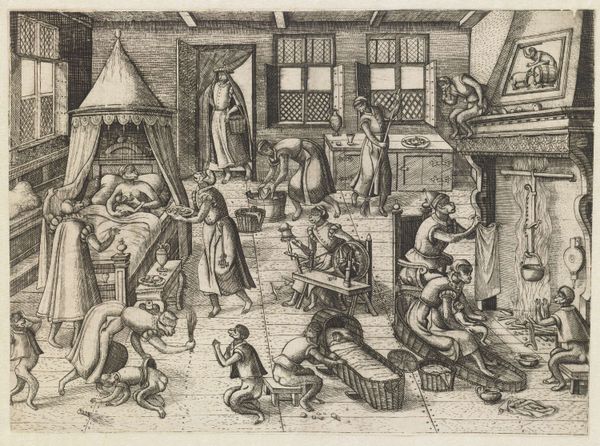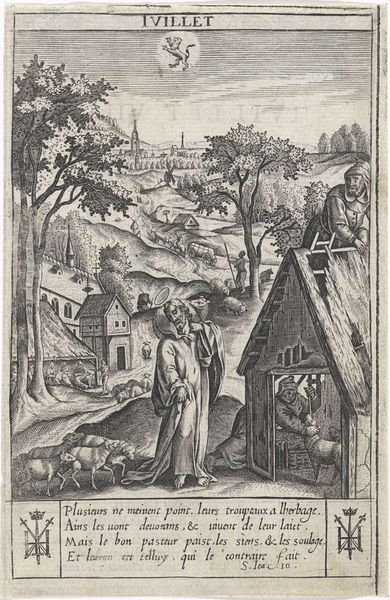
print, engraving
#
medieval
# print
#
landscape
#
figuration
#
ink line art
#
line
#
cityscape
#
genre-painting
#
history-painting
#
northern-renaissance
#
engraving
#
realism
Dimensions: height 60 mm, width 229 mm
Copyright: Rijks Museum: Open Domain
Editor: This print, called "Oktober," dates back to sometime between 1554 and 1641. It's unsigned, from an anonymous artist, but hangs here at the Rijksmuseum. It depicts what appears to be village life. What catches my eye is the contrast between the dark, active scenes on the left and the lighter, more agricultural scenes on the right. How do you interpret this work? Curator: Look closely at the symbols of labor and harvest, and what feelings do these evoke? "Oktober" seems to be more than just a genre scene; it encapsulates the spirit of autumn. Notice how the figures engaged in wine-making on the left create a kind of enclosed energy, almost a chaotic vitality, while on the right, gathering the harvest seems more tranquil. Editor: I do see that now. What’s interesting to me is the focus on community - everyone is working together. Curator: Exactly. And consider what "October" might have symbolized in the 16th and 17th centuries, times of immense religious and social upheaval. The print presents not only the natural cycle of seasons, but a subtle cultural memory. Do you recognize the way collective work strengthens community identity, providing a continuity against any disruption? Editor: Yes, now that you mention it, I get that sense of stability, maybe even defiance, through shared effort and tradition. Curator: The beauty of such images resides in how they can carry layered meanings. On one level, it celebrates a month's labor. On a deeper level, "Oktober" is a testament to shared traditions against changing times. And from these dark ink lines emerge lasting symbols of togetherness and endurance. Editor: I never would have seen all of that. This makes me appreciate not just the image but its enduring message about community and resilience even more. Curator: Indeed. And isn't it fascinating how a simple print from centuries ago can still speak to our modern longing for community?
Comments
No comments
Be the first to comment and join the conversation on the ultimate creative platform.

